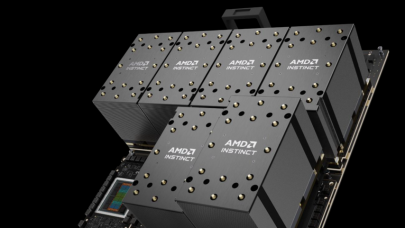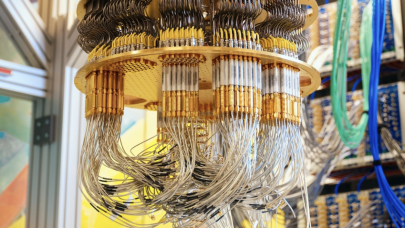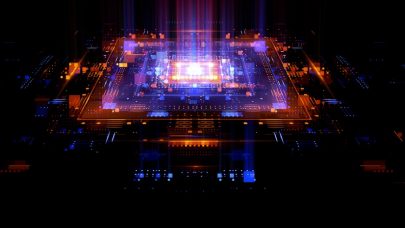TOKYO, CAMBRIDGE, England, and BROOMFIELD, Colo., July 13, 2023 — Quantinuum today announced that it has become the first quantum computing company to simulate a chemical molecule by implementing a fault tolerant algorithm on a quantum processor using logical qubits.
 This essential step towards using quantum computers to speed up molecular discovery, with better modeling of chemical systems, reduces the time to generate commercial and economic value.
This essential step towards using quantum computers to speed up molecular discovery, with better modeling of chemical systems, reduces the time to generate commercial and economic value.
Quantinuum scientists, led from Japan, used three logical qubits on Quantinuum’s H1 quantum computer to calculate the ground state energy of the hydrogen molecule (H2) using an algorithm for early fault tolerant devices called stochastic quantum phase estimation.
It is already known that many algorithms that can be used on today’s “NISQ” era quantum computers will not scale to larger problems. The phase estimation technique used in this experiment with logical qubits has better potential to scale but is challenging to implement on today’s quantum computers because it requires very complex circuits, which are prone to failing due to noise.
Dr Raj Hazra, CEO of Quantinuum, said: “Today’s announcement turns a page for quantum chemistry on quantum computers, moving us towards the era of early fault tolerance. This achievement is testament to the dedication of the hardware and software teams at Quantinuum, who consistently demonstrate their ability to achieve world-class results. It was made possible thanks to the H1 quantum computer which brings together high-fidelity gate operations, all-to-all connectivity and conditional logic, with the truly world-leading algorithms, methods and error handling techniques offered by our InQuanto chemistry platform.”
In a scientific preprint paper, “Demonstrating Bayesian Quantum Phase Estimation with Quantum Error Detection,” the team of scientists led by Dr Kentaro Yamamoto report they have overcome this challenge by creating and using logical qubits achieved with a newly developed error detection code designed for the H-series quantum hardware. The code saved quantum resources by immediately discarding a calculation if it detected qubits that had produced errors during the computation process.
When combined with the low noise of the H-Series hardware and the capabilities of the Quantinuum Software InQuanto, researchers were able to run these complex circuits for the first time, producing more accurate simulation results than those achieved without the error detection code. Creating and using logical qubits with error detection is a prerequisite for the more advanced error correction, which provides real-time protection for a quantum computer against various forms of “noise.”
Dr. Kentaro Yamamoto, Senior Researcher at Quantinuum, said: “Simulating the hydrogen molecule and getting such good results with an early fault tolerant algorithm on logical qubits is an excellent experimental result and reminds us how fast we continue to progress. This result may reflect the start of a new chapter for quantum computing professionals, where we can begin to adopt early fault tolerant algorithms on near-term devices, using all the techniques that will ultimately be required for future large-scale quantum computing.”
For scientific researchers and industrial enterprises in sectors such as healthcare, energy, automotive and manufacturing, who invest heavily in researching future molecules and materials, this demonstration implies that the time to useful quantum computing continues to get nearer.
This demonstration, which was run on Quantinuum’s System Model H1 quantum computer, Powered by Honeywell, will be integrated into future versions of its industry-leading quantum computational chemistry platform, InQuanto, allowing industrial companies and academic researchers to explore the use of early fault-tolerant algorithms run on quantum computers for material and molecular modeling.
About Quantinuum
Quantinuum is the world’s largest standalone quantum computing company, formed by the combination of Honeywell Quantum Solutions’ world-leading hardware and Cambridge Quantum’s class-leading middleware and applications. Science-led and enterprise-driven, Quantinuum accelerates quantum computing and the development of applications across chemistry, cybersecurity, finance and optimization. Its focus is to create scalable and commercial quantum solutions to solve the world’s most pressing problems in fields such as energy, logistics, climate change, and health. The company employs over 480 individuals, including 350+ scientists and engineers, at eight sites across the United States, Europe, and Japan.
Source: Quantinuum

































































